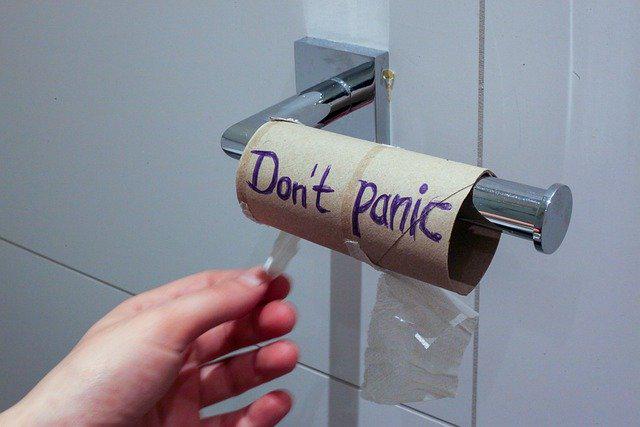Self-Fulfilling Prophecies
We see it in every crisis - somebody posts a picture on social media of a bare shelf or a rumour goes around that the shops are running out of something (such as, to pick a good completely at random, toilet paper), and suddenly the shelves are emptying everywhere, and it seems to make sense to secure a stockpile.
It starts as an irrational fear, but it is reified by the seemingly rational self interests of individual consumers. It makes sense, on an individual level, to buy extra because everybody else is, or might be. The expectation of shortages leads to shortages, just as the expectation of economic growth helps create growth, and the fear of a crash leads to or worsens a crash, as everybody tries to get off the merry-go-round at the same time.
Market economies amplify and feed off our emotions and impulses in the face of incomplete information. We’re not generally privy to the details of the stocks and supply chains of any given good. If we were, we could determine whether a perceived shortage is real and how long it might be expected to last, and act accordingly. Even better than obtaining and acting on such information individually - which could still lead to panic buying in the event of an actual shortage - would be to evaluate and respond to the situation collectively, to ensure that everybody can get a reasonable share of goods even in the event of a shortage.
Markets don’t offer any mechanism for collective reasoning or action. The best a market can offer is price-gouging, where massive price increases disuade all but the most desparate until everybody comes to their senses. Thankfully, retailers in societies that haven’t completely devolved into neoliberal hellscapes tend to opt for rationing instead. Nobody wants to be seen to be a profiteer by a community that they are going to want to continue to serve after the crisis has passed.
It’s unfortunate that we have to be reliant on the reputational concerns of retailers to ensure the provision of essential goods in a crisis. The expectation of shortages leads to shortages, but somehow the certainty of occasional crises doesn’t lead to distributed production, resilient supply chains, or emergency stockpiles. Our economy’s blinkered focus on short-term profits and fetishisation of “efficiency” doesn’t allow for this kind of thinking.
